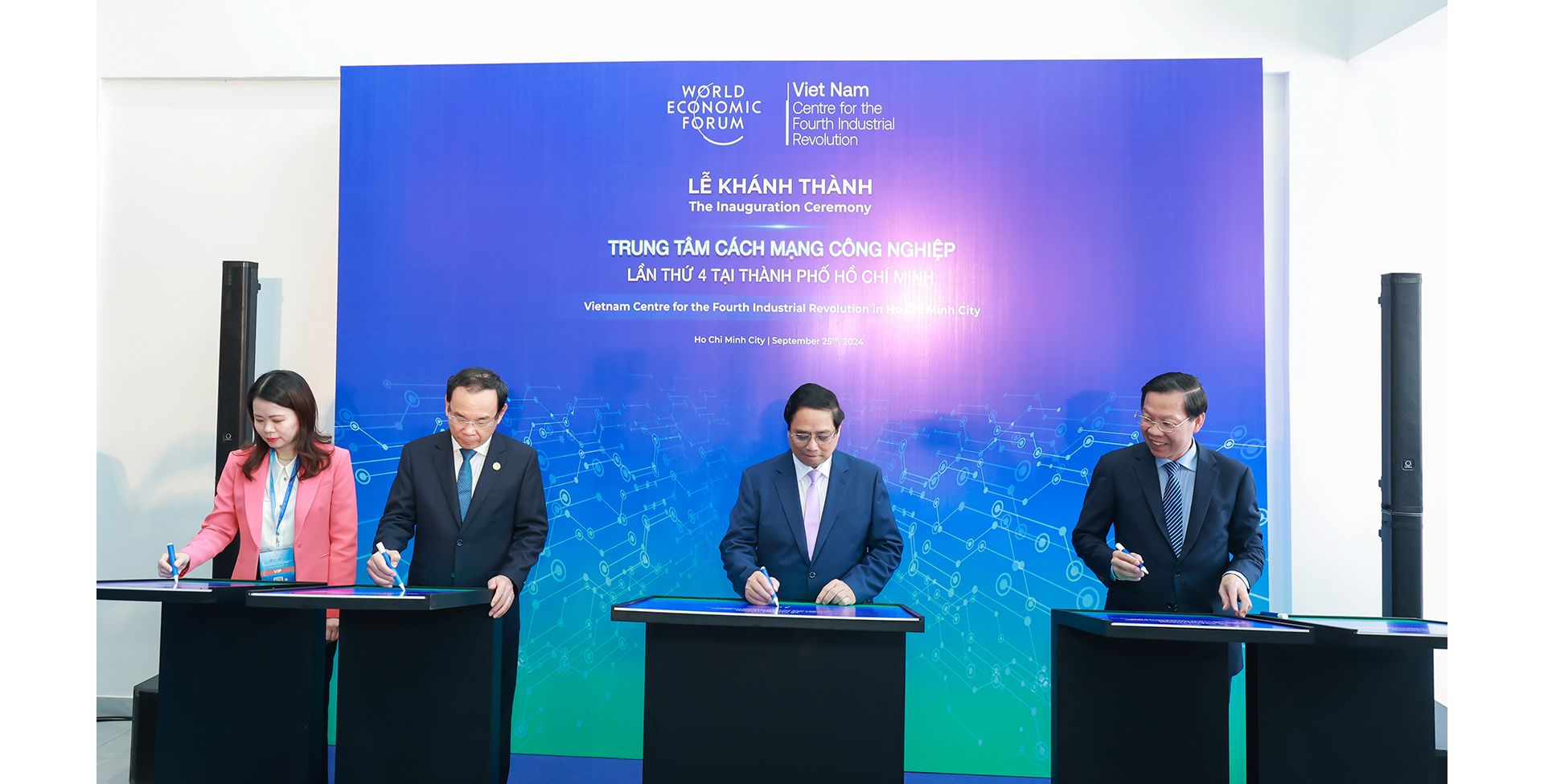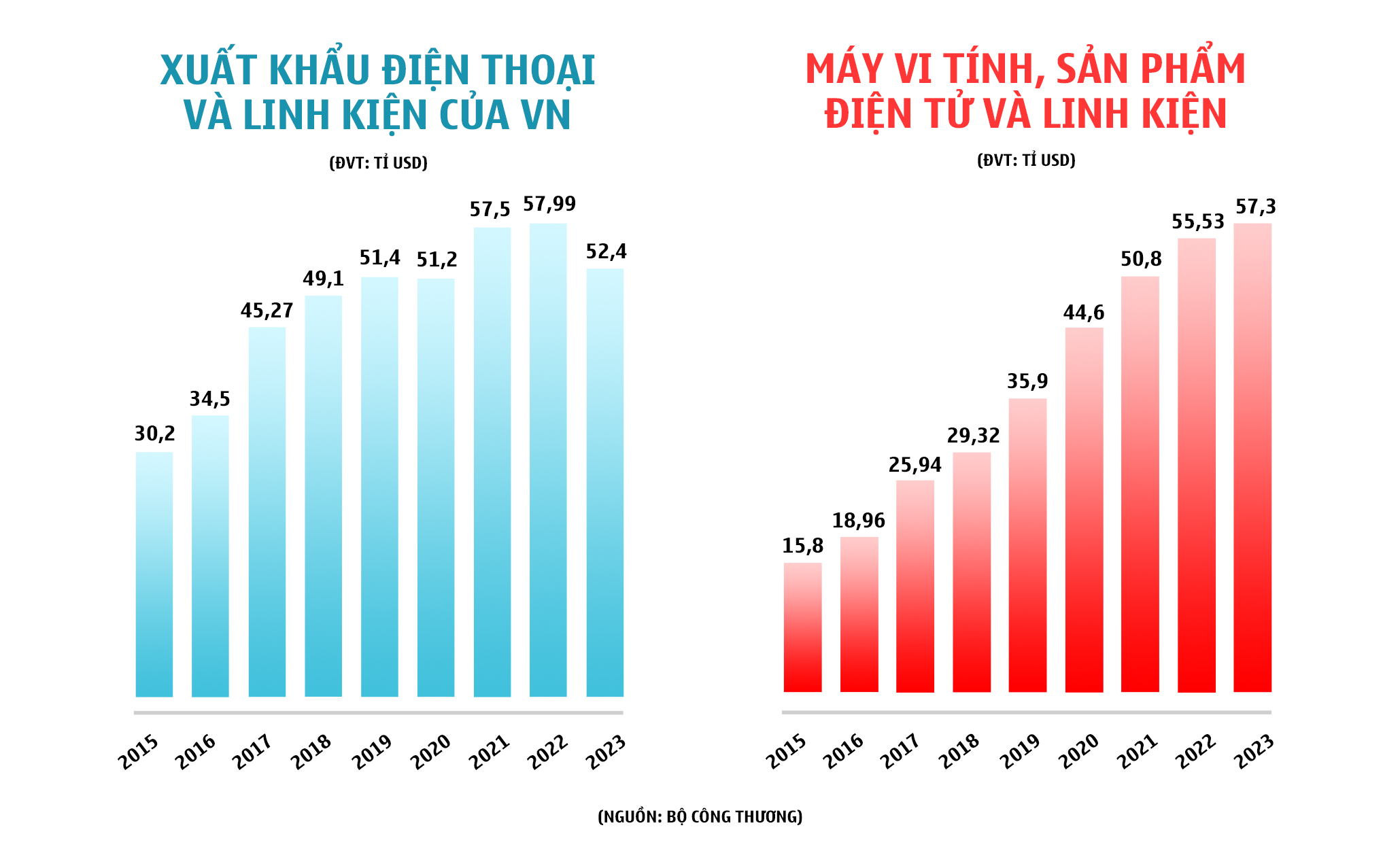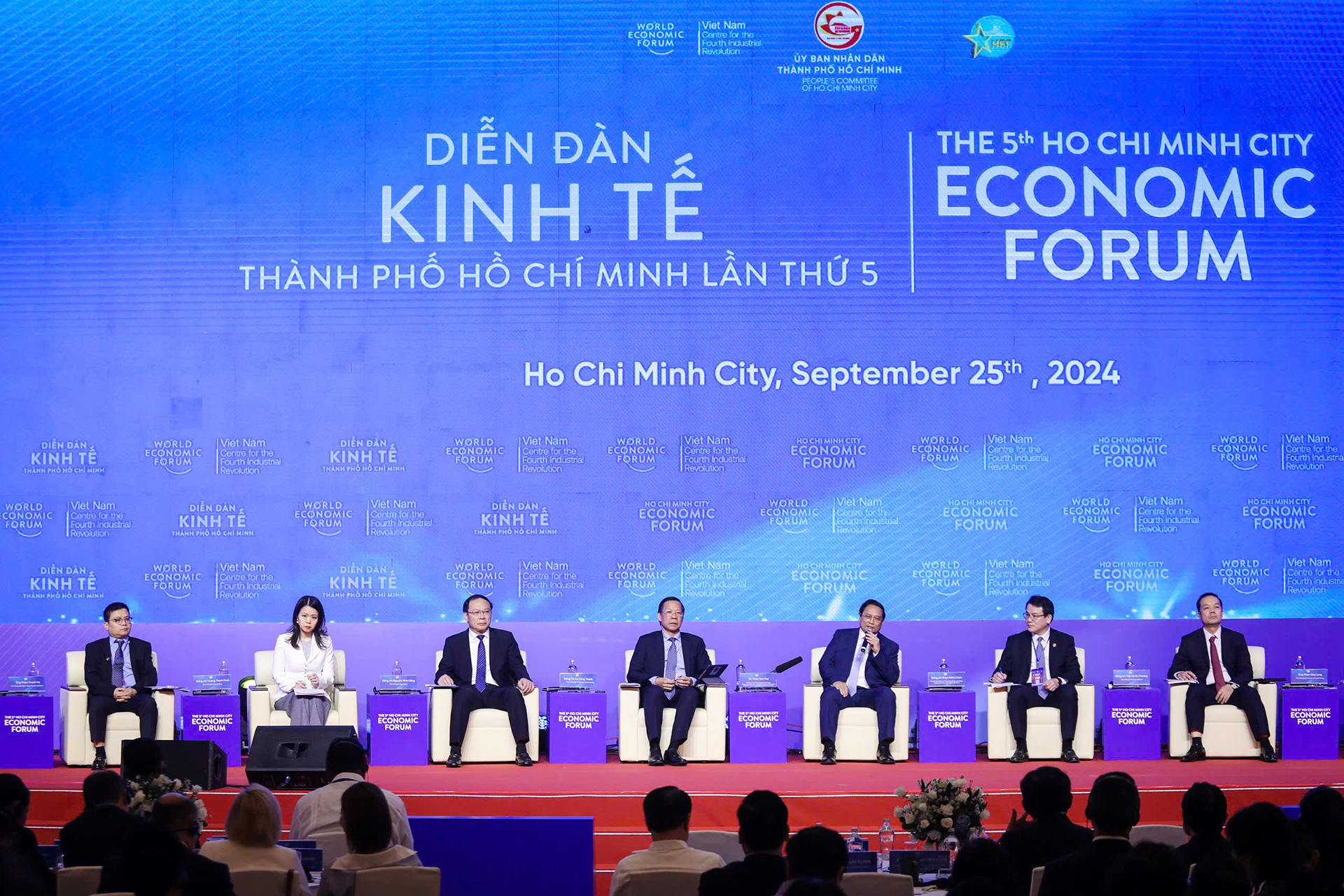Not only smart electronic devices, many advanced technology products “made in Vietnam” are increasingly popular in the global market.
1. MacBooks, iPads… to be Mass-Produced in Vietnam
In the last week of September, three provinces leading in foreign direct investment (FDI) attraction, including Bac Ninh, Dong Nai, and Binh Duong, held conferences to announce planning and promote investment. Ho Chi Minh City, the country’s economic powerhouse, organized the 4th Economic Forum with the participation of numerous foreign investors and experts. Many investment projects and agreements were signed and granted licenses at these events. For instance, on September 26th, Binh Duong granted investment approval for 8 projects with a total investment capital of 1.8 billion USD. Dong Nai granted investment registration certificates to 17 enterprises with a total investment of 6 billion USD.
Bac Ninh, the most dynamic of the three provinces, approved 18 projects with a total estimated investment capital of 5.6 billion USD, including several large-scale technology projects. Notable projects include the FCPV Foxconn Bac Ninh plant by the Foxconn Group (Taiwan), with an investment capital of 383.3 million USD; the Goertek Nam Son – Hap Linh plant for manufacturing electronic products, network devices, and multimedia audio products, with a capital of 280 million USD; the high-precision PCB project of Victory Giant Vietnam with a capital of 260 million USD; and Amkor’s project, which announced an additional capital increase of 1.07 billion USD.
Additionally, Samsung Display signed a memorandum of understanding (MoU) with the Bac Ninh People’s Committee to invest an additional 1.8 billion USD in a plant specializing in manufacturing screens and electronic components in the Yen Phong Industrial Zone (Bac Ninh) in the near future. Samsung Vietnam representatives confirmed that with this investment project, apart from the OLED products for mobile phones currently being produced, Samsung will implement a production line for OLED products dedicated to IT devices and automobiles—products predicted to capture approximately 30% of the global market share in the next five years.

One project that has garnered special attention is the assembly line for MacBooks and iPads at Foxconn’s plant in Bac Giang. The Ministry of Natural Resources and Environment revealed that Fukang Technology, a subsidiary of Foxconn, is currently seeking environmental permits for the second phase of its emissions treatment system for iPad and MacBook production lines at its Bac Giang plant. In February this year, the investor received a license to produce tablets, laptops, and electronic device motherboards in Bac Giang. The Fukang Technology project at the Quang Chau Industrial Zone (Bac Giang) has an investment capital exceeding 12.507 trillion VND (approximately 530 million USD), with an annual capacity of assembling and processing around 16.1 million tablets and laptops.

Foxconn is known as a leading assembly partner for the U.S. tech giant Apple. In mid-April this year, Apple CEO Tim Cook made his first visit to Vietnam and stated that Apple currently has two legal entities in Vietnam, over 70 factories as manufacturing partners, 40 distribution partners, and more than 5,000 authorized retail stores. Tim Cook emphasized that the potential for cooperation between Apple and Vietnam remains vast and can be further expanded to achieve even better results in the future. Foxconn began establishing factories in Bac Ninh, Bac Giang, and several other provinces of Vietnam in March 2007, producing a diverse range of products, from computers and IT products to consumer electronics, automobile components, and semiconductor equipment. In early July this year, the group received investment permits for two projects to produce gaming equipment and smart entertainment products in Quang Ninh, with a total capital of 551 million USD. Foxconn is currently in the process of shifting investments and expanding production in Vietnam.
Previously, in June, during a meeting with Prime Minister Pham Minh Chinh, Brand Cheng, CEO of Foxconn Industrial Internet (a subsidiary of Foxconn), revealed that the group’s factories are now present in five provinces and cities in Vietnam, employing 80,000 workers and with a total investment of around 4 billion USD.
2. Vietnam as the Production Hub for Many Technology Giants
Not only Apple’s partners, but also other major technology companies have long chosen Vietnam as their primary production hub. In April, the 1 billionth mobile phone manufactured by Samsung Electronics Vietnam in Thai Nguyen was completed. This was the Samsung Galaxy S24 Ultra, the world’s first AI-powered smartphone model that bears the imprint of Vietnamese craftsmanship. To date, Samsung has produced over 2.13 billion smart products in the Galaxy ecosystem in Vietnam, including smartphones, tablets, smart wearables (watches, earphones), computers, and basic phones.
According to Mr. Park Sung Ho, General Director of Samsung Electronics Vietnam Thai Nguyen, Samsung began producing its first mobile phone in 1988. Up to now, Samsung’s global mobile phone production has exceeded 6 billion units. The time to reach the milestone of 1 billion Samsung phones worldwide was 21 years, but for Samsung Electronics Vietnam Thai Nguyen alone, it only took 10 years. It is estimated that about 60% of Samsung’s mobile phones worldwide are now produced in Vietnam.

With the participation of Samsung and other manufacturers such as Nokia, LG, Asus, and Apple, Vietnam has risen to become the world’s second-largest exporter of mobile phones since 2021. In addition to mobile phones, popular electronic products like laptops, desktop computers, tablets, digital cameras, and storage devices “Made in Vietnam” have also been present in major markets like China, the U.S., the EU, South Korea, and ASEAN. The export value of these products has soared annually. Nikkei Asia has predicted that by 2030, half of all laptops sold globally will be produced by Southeast Asian countries. In this context, many projects for laptop manufacturing in Vietnam have been highlighted, such as those of Taiwan’s Wistron Corporation. Other Taiwanese companies, like Compal Electronics, are also considering expanding their production activities in Vietnam.
Furthermore, leaders of major corporations have expressed their intention to continue investing and expanding production in Vietnam. Through its officially operational Research and Development (R&D) Center, Samsung aims to contribute positively to the development of hardware and software in the advanced IT field and the Fourth Industrial Revolution. The corporation is also preparing conditions to trial-produce chip grid semiconductor products, with plans for mass production at the Samsung Electro-Mechanics plant in Thai Nguyen.
Samsung Display started investing in Vietnam in 2014 and has now been in the country for 10 years. With an initial investment of 1 billion USD, the company has since poured about 6.5 billion USD into Vietnam. If the investment procedures for the newly announced project in Bac Ninh (with an investment capital of 1.8 billion USD) are completed soon, Samsung Display’s total investment in Vietnam will reach 8.3 billion USD. The Korean investor has been affirming its strategy to make Vietnam a “complete global production base.” Similarly, LG’s leadership announced an additional investment of 4 billion USD in Vietnam, aiming to turn the country into a hub for producing phone camera modules in the future.
Mr. Do Khoa Tan, Deputy General Secretary of the Vietnam Electronics Business Association, noted that after years of investment and production by major companies like Samsung, Intel, and LG, Vietnam has gradually developed a supporting supply chain, creating opportunities to attract new investments in this field. Particularly in recent times, foreign corporations present in Vietnam have continuously expanded both in scale and supply chain integration. Large chip and semiconductor companies such as Nvidia (USA), Hana Micron Vina under the chip giant Hanmi Semiconductor (Korea), and Infineon Technologies AG (Germany) are exploring collaboration opportunities. With the presence of major companies like Apple, the number of mobile phones and smart devices produced in Vietnam is expected to increase significantly.

3. Great Opportunities for “Made in Vietnam” Technology Products
In the last week of September, on the other side of the globe, during his participation in the 79th UN General Assembly High-Level Week and his working visit to New York (USA), General Secretary and President of Vietnam To Lam met with leaders of several major American corporations and investment funds such as Apple, Meta, Super Micro, Blackstone, and Warburg Pincus. At the meeting, the General Secretary proposed that Apple and its partners support Vietnamese enterprises in enhancing production capacity and participating in the global supply chain; study the possibility of establishing an R&D center at the National Innovation Center (NIC); and consider providing talent scholarships for Vietnamese students in IT, programming, electronics, semiconductors, and AI.
He also requested that Apple continue to advocate and direct its suppliers in the supply chain to expand business and investment in Vietnam. Responding to the request, Apple Vice President Nick Ammann emphasized that Vietnam is not only a “fantastic market” for the corporation but also a “production hub” for Apple to supply goods to the world. Goertek and Foxconn projects in Bac Ninh have been producing components for Apple. American technology corporations have reaffirmed their interest in the Vietnamese market.

With new investment policies in place, the opportunities for “Made in Vietnam” technology products are greater than ever. This is a positive signal for the development and expansion of the high-tech industry in Vietnam, making significant contributions to the global supply chain.
















